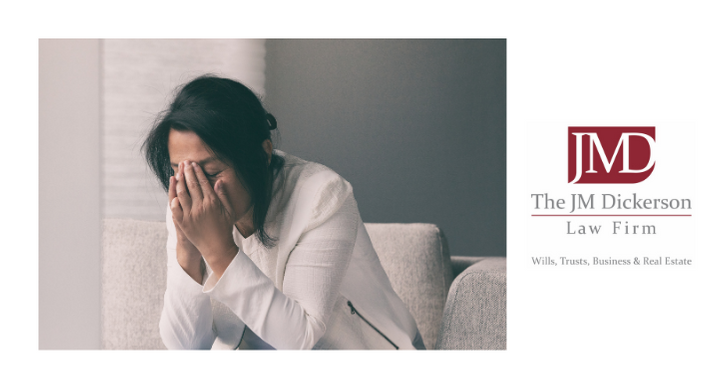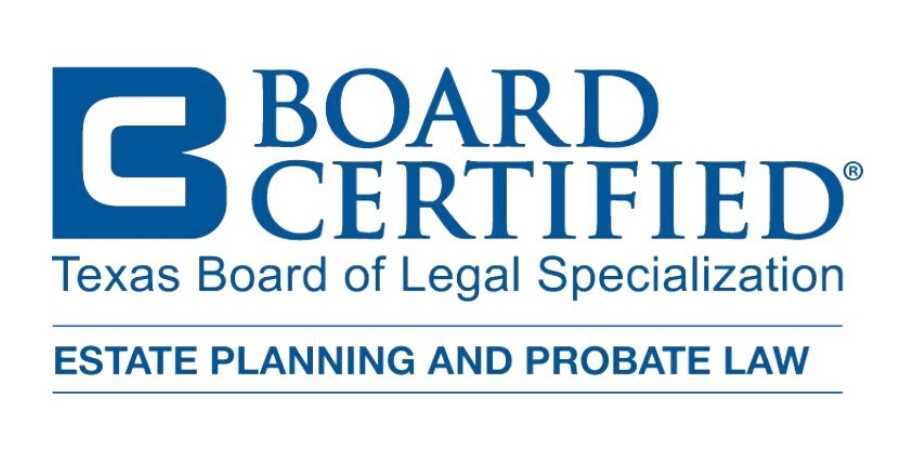8 Big Estate Planning Mistakes to Avoid
Take heed...

Friends, take heed and avoid these eight major estate planning mistakes.
1. Relying on the Government’s “Estate Plan”
One of the biggest mistakes people make in estate planning is to not have an estate plan in place at all. This puts families in the position of being subject to government rules and regulations about all of the important things; who gets custody of the kids, who gets the money from the estate; who gets family business and stock - all the things you want to have direct control over when you’re making your plans. And that breaks my heart. I hate seeing families ripped apart by a lack of estate planning; seeing cash resources depleted, and custody decided by an impersonal system.
Did you know that the estate of Elvis Presley went through this process? Did you know that taxes and fees made up 73% of the estate’s value? I’m sure Elvis wouldn’t have wanted that, and he would have been heartbroken to learn that the legacy he planned to leave to his daughter was virtually wiped out.
The truth is, the cost of not making an estate plan can easily inflate to far more than the cost of an elaborate, “gold plated” estate plan - with none of the benefits of making a good plan. Failing to take action and make up your mind about these important questions, including custody and the financial and tax implications, can leave your loved ones tied up in the court system at a time when they ought to be grieving for their loss.
The other big problem with failure to make an adequate estate plan is that if you use a simple will, your will can become public. Anyone can go to probate court and request a copy of it. Your financial assets will be exposed and the disposition of your property open to public scrutiny. It’s far better, from a privacy standpoint, to use a more protective trust-based plan to allocate your finances and shelter the details from the public eye.
Don’t make the mistake of relying on the government “estate plan.” You’ll only cause a lot of heartache and financial distress for your family. This is one of the most tragic mistakes you can make, and I hate seeing families suffer because of it.
2. Doing it Yourself – or Using Cheap Online Tools
I know that your finances are important to you, and it can be tempting to try to create an estate plan yourself, or use cheap online tools to do it at virtually no cost. After all, how hard can it be? Unfortunately, estate planning is much more than simply filling out the blanks in form documents. Every financial situation - and family situation - is unique, and a generic catch-all form can’t address your needs. Why is it such a bad idea to go the DIY route with your estate planning? For one thing, estate and tax laws change constantly - almost on an annual basis. And they vary from state to state.
You really need a detailed analysis of your situation, with application of current estate and tax laws, to get you the best possible outcome in your estate planning. If you go with a DIY approach and use a generic form, you’re almost guaranteed to be leaving money on the table - or more accurately, handing it over to the government - sometimes to the tune of tens of thousands, or even hundreds of thousands of dollars. Wouldn’t you rather that money go to your family?
The issues get even more complicated if you have children from previous marriages, or if you and your spouse have separated or divorced. Then it’s not just about money - it’s about the well-being of your family. Do you really want to trust those decisions to a court that sees dozens of cases per day, and doesn’t know your family or your wishes? Even if you’ve got the best intentions with your DIY approach, or in using cheap online tools, the stakes are too high to trust these critical questions to someone who isn’t experienced and well-versed in current law. All it takes is to answer one question incorrectly, or to overlook a significant detail like appointing a guardian for children, to lead to a lot of heartache.
3. Choosing a Lawyer Who Bills by the Hour
If you’ve decided to go with a lawyer for your estate planning needs - great! You’re on the right track. Enlisting the aid of an experienced professional can help you save tens of thousands of dollars - as well as a priceless emotional toll for your family - by having your affairs put in order by someone who knows the right questions to ask, and how best to apply law to your situation.
But - and this is a big one - choosing a lawyer who bills by the hour can be a big mistake when it comes to estate planning. Why is that? Any lawyer who is an expert in estate planning should be able to tell you exactly what your estate plan should cost. A lawyer who bills by the hour either doesn’t know how much time it’s going to take - which means he isn’t the experienced professional you want drafting these important legal documents - or he just wants to get paid for every little thing, from drafting the documents to conducting meetings and making phone calls - in other words, wasting your time and money. Don’t make this mistake. You want a knowledgeable, experienced estate planner. You don’t want someone who’s just trying to wring every penny out of you that he can.
4. Thinking That Any Lawyer Can Do Estate Planning
A lawyer is a lawyer, right? Wrong. In today’s world, law is incredibly specialized and complex. The lawyers who are best in their field pick an area of law and become experts in this area. A lawyer who specializes in estate law, for example, will be familiar with state laws, federal laws, tax considerations and important legal questions that go into a good estate plan.
A general practitioner, on the other hand, who handles a wide variety of legal cases simply can’t be an expert in estate law. A general practitioner won’t have had the time to learn this area of law in depth, and will be splitting his attention in too many directions to be a really great estate lawyer. A general practitioner might be a great person to know for all of your minor, day-to-day legal needs, but you don’t want this person putting together your estate plan. You want an expert.
5. Thinking That All Trusts Are the Same
This is where things get a little “legal” - the question of what type of trust is best for your estate plan. Many people choose to use a trust in an estate plan to convey assets and protect their privacy. But our legal system has been evolving for hundreds of years, and today there are dozens of types of trusts - each one with a different purpose. What does this mean for your estate plan?
What you need to know is that there’s no such thing as a “one size fits all” trust. A business owner would want a different trust from a physician, who would have something different from an executive, who might have something different from a single parent. You need the right type of trust for YOUR situation - not the only trust that an inexperienced lawyer knows how to create.
In other words, attorneys who use a “fill in the blank” or “one size fits all” trust are doing their clients a disservice. These trusts may not be the best type of trust for a given situation, and may not work as intended. Do you really want to leave your estate plan in the hands of someone who doesn’t know how to craft the right legal document for your needs?
6. Failing to Adequately Protect Children
If you have kids, they’re probably the most important thing in your life. In fact, children are arguably the most important reason to put together an estate plan with the help of a professional. The reality is that having children dramatically complicates the estate planning process. Particularly if you have children from multiple spouses, or if you and your spouse have separated or divorced. It’s critical to ensure that your children are properly provided for, and that an appropriate guardian - of your choice - is named in your estate plan. What happens if you don’t take these important steps?
When you use a DIY resource or online tools, these options typically don’t have the appropriate provisions for guardianship and allocation of financial resources for your children. They may lack any mention of this altogether, or they may take a “one size fits all” approach that simply doesn’t apply to your family or doesn’t address your situation. When this happens, the decision of what to do with the kids is left up to the courts.
Do you really want to trust a court with the question of who will raise your children? If you need an example of exactly how devastating this can be, take a look at the case of Terry and Pat Birch. These All-American parents had a tragic car accident, which their three little boys survived - but they didn’t. Court documents have shown that Terry and Pat had talked about naming guardians for their boys, but they simply hadn’t gotten around to putting their decision in writing. After all, we always think we have more time, and they were healthy, happy adults with three small boys at home. Estate planning is often something we think of later in life, so it’s not surprising they didn’t feel any particular urgency to create their plan.
Unfortunately, the Birchs had no idea how much conflict would be involved in naming a guardian for their boys. In the four years following their death, thousands of court documents have been filed in their case, nine lawyers have been involved, and the costs have totaled in the tens - or hundreds - of thousands of dollars. In the meantime, the boys went into the foster care system for a short time, while police worked to locate family members. Would you want your kids going to strangers after a tragedy like that? When family was finally located, the boys went to live with one of their aunts, who allegedly prevented the rest of the family from having any contact with the boys. Not only were their parents tragically ripped away from them, but they were denied the comfort of the rest of their family, too! In the end, the Court will be responsible for appointing a legal guardian for the boys. This person may or may not be the person Terry and Pat would have chosen. They’ll never have a chance to say who they want to raise their kids, or have any say at all in their children’s lives - because they thought they’d have more time, so they didn’t put together a plan. Don’t be Terry and Pat Birch.
Your children are too important to trust to the court system, or to risk on DIY resources that may not adequately arrange for the protection of your children. Take the fate of your children in your own hands, and craft a detailed estate plan to ensure they’re protected and loved the way you want them to be.
7. Using a Lawyer Who Doesn’t Have a Follow-Up Plan
Estate plans are a one-time thing that you never have to worry about again, right? Think again. Unfortunately, estate planning requires an ongoing commitment to making sure your documents are up-to-date. The law changes every year, and plans need to be reviewed to ensure that they still comply with current law, and still keep your estate in an advantageous financial situation. Additionally, your life isn’t static. You’ll have changes as time passes. Maybe you open a new account. Maybe you make some new investments that do very well. Maybe you sell an asset, or acquire a part of a business. Or maybe you remarry, become a step-parent or buy or sell real estate. All of these things can throw a wrench in your existing estate plan, however well thought out. You need to revisit your estate plan regularly to ensure that your needs are still being met, or draft new documentation to address your changing lifestyle.
A good estate lawyer will have a program to conduct annual reviews of your plan. Follow-up is an essential part of ensuring that you’re protected by your estate plan. An estate lawyer who cares about keeping you protected, and providing for your family, will offer a scheduled annual follow-up and review for a set price. Don’t just take the word of a lawyer who says he’ll follow up. For most lawyers, this isn’t part of the service that they provide every client. Ask your lawyer for details about follow up, and make sure you choose a lawyer with a good follow up plan - or your estate plan may become meaningless in spite of all of the hard work, legal expertise and cost you put into creating it.
8. Choosing a Lawyer Who Doesn’t Guarantee Service
When you’re making an important decision that affects your life, you put a lot of effort and research into it, don’t you? When you’re buying a car, for example, you shop around for a car with a good reputation; a car that meets your needs; and a car that the manufacturer will stand behind. The guarantee or warranty is often a big part of the purchase process, and it helps to ensure that you’ll stay happy and protected long after making your decision.
Why should estate planning be any different? You want to ensure that your estate plan is good, and is going to serve your family well. Wouldn’t you prefer to have an estate plan with a guarantee? Think of it this way: how many lawyer jokes have you heard that give lawyers a bad reputation? Probably plenty. Sometimes, this bad reputation is deserved. Some lawyers are unscrupulous; some want to make money at any cost; and some don’t care about their clients.
To avoid getting into a bad situation with your estate plan, choose a lawyer who guarantees his service. Any good lawyer will offer a guarantee. If your lawyer won’t give you a guarantee, you might be dealing with one of those “bad reputation” types - and it might be time to move on to someone who cares about doing right by you and your family, and stands behind his work.


CONTACT INFORMATION






















